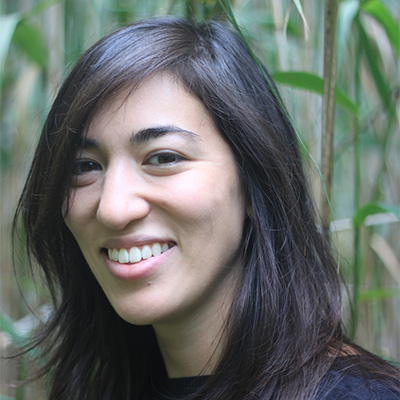
Occupation
Senior Manager, Marketing and Impact at CoPower
What was your career path after graduation?
In 3rd and 4th year I became involved with the youth climate movement through the Canadian Youth Climate Coalition, and had the opportunity to be part of the Canadian Youth Delegation to the UN climate negotiations in Poznan COP 13. That was my first experience of climate advocacy and organizing work. It got me fired up and following the negotiations I started my own project to bring young people from small island developing states to Canada for a speaking tour. I found support throughout the university for the project and both from my professors, and student groups like UTERN and UTSU and with a bit of momentum behind me, managed to get the Ottawa-based Climate Action Network (CAN) Canada to adopt me and my project. The Centre for Environment (now the School of the Environment) supported me in using my work with CAN as my 440Y Professional Experience course and I continued working with CAN following graduation, building experience as an organizer and campaigner.
I was later hired as a campaigner with Change.org and became half of their founding Canadian team. I got to work on campaigns ranging from stopping a Walmart from being built next to Kensington Market to getting iconic Canadian women featured on our bank notes.
After nearly seven years working in advocacy I wanted a change and I also wanted to get back to working on climate change. In particular, I wanted to find a job where I could see tangible results — ie. clean energy projects getting built! So, I joined CoPower, a clean energy investment start-up that is allowing Canadian investors to use their portfolios to support the development of distributed clean energy projects. As their Senior Manager, Marketing and Impact, I get to use much of what I learned as a campaigner to build a community of people who want to invest for both profit and planet.
How did the Environment program influence your career?
The most important part of my time studying at the Centre for Environment (now School of the Environment), was the people I met. The incredibly supportive David Powell and others like Professor Scharper, and Paul Muldoon allowed me to shape my program and assignments around my specific interests in climate advocacy. They also granted me the flexibility to take advantage of experiences like attending the UN climate negotiations in Poland and Copenhagen, and then reflect on them in an academic context. Six years after graduating, it’s exciting to see so many of my fellow graduates doing exciting and impactful work. For instance, today, I’m working for CoPower which was co-founded by David Berliner, a friend and fellow graduate from the program!
How and why did you choose this career?
In a way, I fell into this career path by just doing the things I was passionate about. When I decided I wanted to run a speaking tour bringing youth from small island developing states to Canada, I wasn’t thinking about it as leading to a career in advocacy or campaigning. I just thought of it as a useful climate intervention that I hoped would make a difference. Later on, some people said, “Hey, you’re pretty good at this organizing thing,” and I thought, “Okay, great, I guess that’s what I’ll do.”
My decision to transition to a career in renewable energy on the other hand was a deliberate decision. As I said, I wanted to get back to working on climate change because, simply put, I can’t think of anything more important. I chose renewable energy because I want to do work that leads to a tangible reduction in carbon emissions. I chose marketing as the route into this career as it was the one that made the most sense given my campaigning experience. And I chose CoPower because I think the mission of unlocking the capital needed to build clean energy infrastructure by opening up investment opportunities to retail investors is game-changing.
What types of experiences are essential?
In all of my positions I’ve been called on to be a jack of all trades. What’s been most important to my success is not necessarily having all the experience in advance, but rather, being willing to dive in and learn whatever I needed to get the job done. I take lots of online courses and evening and weekend seminars to learn new skills.
Any advice for students?
Use the flexibility of an undergraduate degree to get as much varied experience as possible. Oh, and learn French! The flexibility and time to have an immersion experience in another language is not something that you’ll have once you’re working full time.


